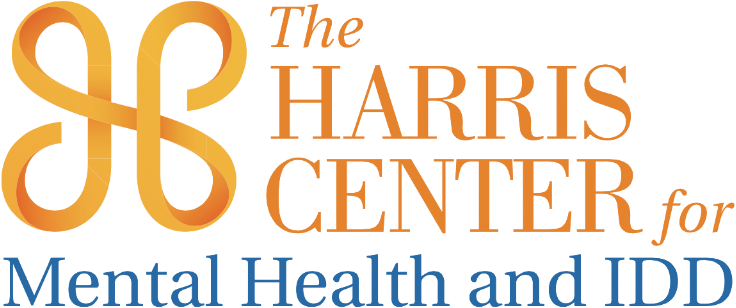
We live in a world of opportunity. You can be whatever you want to be, a doctor, a singer, an engineer. People with autism hold those roles too and they are thriving.
Autism is often misunderstood. Individuals with autism are on the spectrum and each individual is unique and has their own story.
“People don't understand autism as a spectrum. They hear the word, but they don't really embrace what it means,” said Dr. Evanthe Collins, Vice President of IDD Service Division at The Harris Center. "If you look at some of the issues that are commonly experienced by individuals with autism, people tend to want to check all the boxes for every single person. However, everyone is not going to present in the same way."
April is Autism Awareness Month. The Harris Center is debunking some of the top myths about autism.
Myth #1: Autism Is Curable
“One of our mentors used to say he was always asked, ‘Is there a cure for autism?’,” said Charles Kerlegon, Director, IDD Services Division at The Harris Center. “Can you cure being a human being? I think one of the myths is that it’s always curable.”
One of the big myths is that autism is curable or can self-correct. Early detection and intervention of autism can have profound positive effects on individuals and families. When autism is identified early, children can access interventions and therapies that can significantly improve their developmental outcomes. These interventions target key areas such as communication, social interaction, and behavior.
“When children start at a young age in terms of teaching communication skills, it helps to reduce maladaptive behaviors and teaches them appropriate adaptive skills, so that they can then successfully integrate into the school system,” said Dr. Collins.
Myth #2: People with Autism are Savants
“One myth I often hear is that they are savants, suggesting that they're in a standalone silo. They don’t engage. They're all about numbers. That's not the case,” said Kerlegon.
One common misconception about autism is that all individuals with autism are savants, meaning, they have exceptional abilities in a specific area, such as music, art, or mathematics. While some individuals with autism may excel in certain areas, such as memory or attention to detail, these abilities are not universal. Again, people with autism are on a spectrum. While some individuals may have exceptional abilities, others may not. Each person with autism is unique, with their own strengths, challenges, and interests.
Myth #3: People with Autism Lack Sympathy and Communication Skills
“I think people tend to read the list of symptoms and put everyone in that same category, that’s just not the case. We're all individuals,” said Kerlegon.
It's important to recognize that empathy is a complex and multifaceted ability that can be expressed in various ways. While individuals with autism may show empathy differently, they are absolutely capable of expressing care and concern for others. Additionally, communication abilities vary widely among individuals with autism; some may not verbalize their thoughts and feelings often, while others excel at verbal communication.
“If you look at some of the issues that are commonly experienced by individuals with autism, people tend to want to check all the boxes for every single person, and everyone is not going to present in the same way. You might have someone with autism who doesn't communicate very well doesn't or understand the social cues, but then you might have someone who really does communicate well. It really is a spectrum, in terms of how it presents, and it's every single person,” said Dr. Collins.
Myth #4: People with Autism are Non-Verbal
“This is a myth that we certainly hear about, and it’s certainly misunderstood,” said Kerlegon.
Some individuals may have limited verbal communication abilities and may be considered nonverbal. Others may have fluent speech and strong language skills.
For individuals who are nonverbal or have limited verbal communication abilities, alternative forms of communication, such as sign language, picture communication systems, or augmentative and alternative communication (AAC) devices, can be used to help them express their thoughts, feelings, and needs."
In other cases, an individual with autism may not be nonverbal, but rather uncomfortable in some social situations.
“For example, it may not be nonverbal. It may just be that they're a little fearful of opening up,” said Kerlegon. “So, it's not that individuals are nonverbal, they may be experiencing anxiety when interacting with others.”
The Harris Center has several programs to support individuals with autism who experience anxiety and they have had proven successful.
“Oftentimes, individuals interact with their peers more, and they build up their confidence, and you really see them grow,” said Kerlegon.
Supporting Individual with Autism
The Harris Center has a number of programs to support individuals with autism, including program that enhance job training skills, seeking and retaining employment, social skills, coping with stress, health, literacy and more.
To learn more about services for individuals with autism call The Harris Center Access Center at 713-970-7000.




